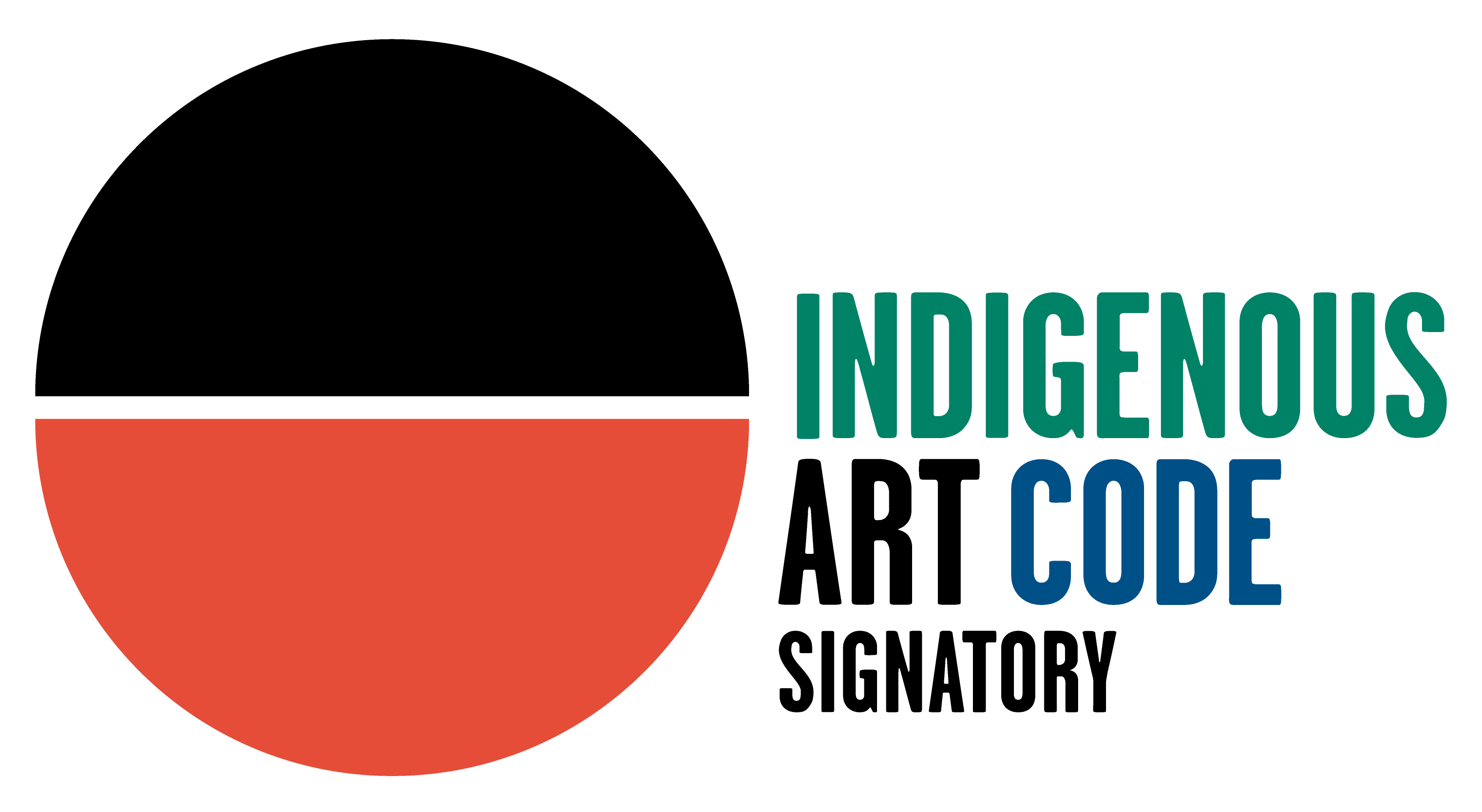Angelina Nampijinpa Tasman Warlpiri, b. 1951
Ngapa Jukurrpa (Water Dreaming) - Pirlinyarnu, 2013
acrylic on linen
30 x 30 cm
11 3/4 x 11 3/4 in
11 3/4 x 11 3/4 in
MM7095
Sold
The site depicted in this painting is Pirlinyarnu (Mt. Farewell), about 165 km west of Yuendumu in the Northern Territory. The ‘kirda’ (owners) for the water Dreaming site at Pirlinyarnu...
The site depicted in this painting is Pirlinyarnu (Mt. Farewell),
about 165 km west of Yuendumu in the Northern Territory. The
‘kirda’ (owners) for the water Dreaming site at Pirlinyarnu are
Nangala/Nampijinpa women and Jangala/Jampijinpa men.
Two Jangala men, rainmakers, sang the rain, unleashing a giant
storm that collided with another storm from Wapurtali at
Mirawarri. A ‘kirrkarlanji’ (brown falcon [Falco berigora])
carried the storm further west from Mirawarri. The two storms
travelled across the country from Karlipirnpa, a ceremonial site
for the water Dreaming near Kintore that is owned by members
of the Napaljarri/Japaljarri and Napanangka/Japanangka
subsections. Along the way the storms passed through
Juntiparnta, a site that is owned by Jampijinpa men. The storm
eventually became too heavy for the falcon. It dropped the
water at Pirlinyarnu, where it formed an enormous ‘maluri’
(claypan). A ‘mulju’ (soakage) exists in this place today.
Whenever it rains today, hundreds of ‘ngapangarlpa’ (bush
ducks) still flock to Pirlinyarnu.
In contemporary Warlpiri paintings, traditional iconography is
used to represent the ‘Jukurrpa’ (Dreaming), associated sites,
and other elements. In many paintings of this Dreaming, short
dashes are often used to represent ‘mangkurdu’ (cumulus &
stratocumulus clouds), and longer, flowing lines represent
‘ngawarra’ (flood waters). Small circles are used to depict
‘mulju’ (soakages) and river beds.
about 165 km west of Yuendumu in the Northern Territory. The
‘kirda’ (owners) for the water Dreaming site at Pirlinyarnu are
Nangala/Nampijinpa women and Jangala/Jampijinpa men.
Two Jangala men, rainmakers, sang the rain, unleashing a giant
storm that collided with another storm from Wapurtali at
Mirawarri. A ‘kirrkarlanji’ (brown falcon [Falco berigora])
carried the storm further west from Mirawarri. The two storms
travelled across the country from Karlipirnpa, a ceremonial site
for the water Dreaming near Kintore that is owned by members
of the Napaljarri/Japaljarri and Napanangka/Japanangka
subsections. Along the way the storms passed through
Juntiparnta, a site that is owned by Jampijinpa men. The storm
eventually became too heavy for the falcon. It dropped the
water at Pirlinyarnu, where it formed an enormous ‘maluri’
(claypan). A ‘mulju’ (soakage) exists in this place today.
Whenever it rains today, hundreds of ‘ngapangarlpa’ (bush
ducks) still flock to Pirlinyarnu.
In contemporary Warlpiri paintings, traditional iconography is
used to represent the ‘Jukurrpa’ (Dreaming), associated sites,
and other elements. In many paintings of this Dreaming, short
dashes are often used to represent ‘mangkurdu’ (cumulus &
stratocumulus clouds), and longer, flowing lines represent
‘ngawarra’ (flood waters). Small circles are used to depict
‘mulju’ (soakages) and river beds.
SIGN UP TO OUR MAILING LIST FOR ALL THE NEWS
* denotes required fields
We will process the personal data you have supplied in accordance with our privacy policy (available on request). You can unsubscribe or change your preferences at any time by clicking the link in our emails.


